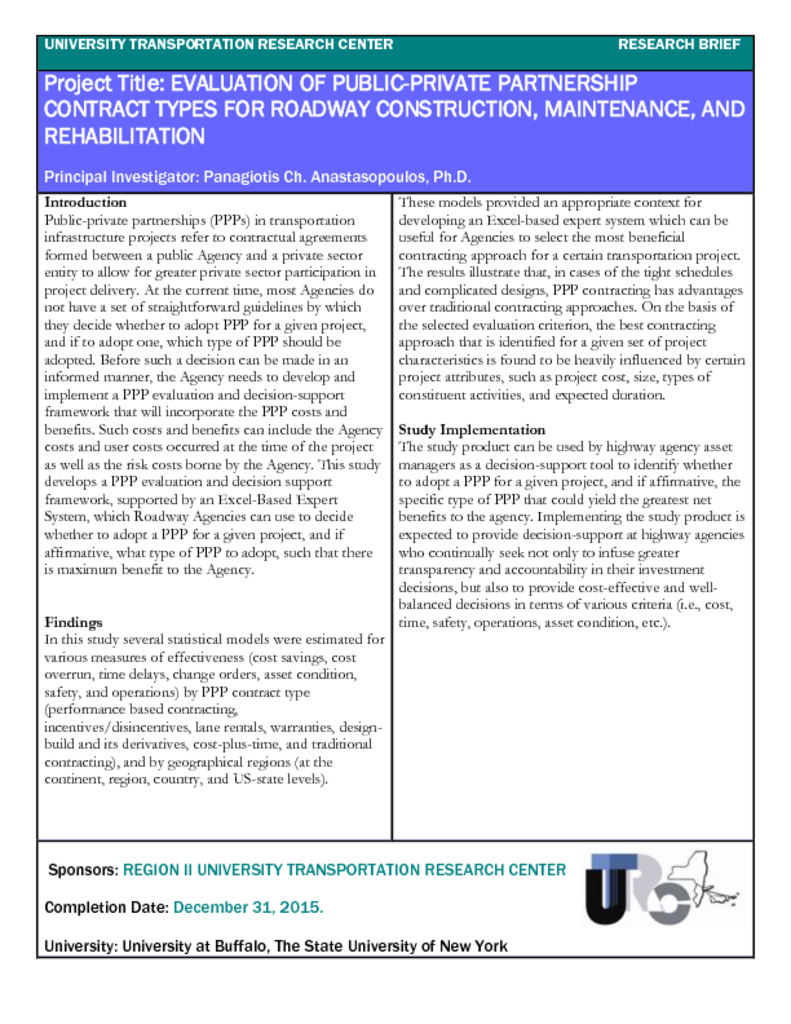Public-private partnerships (PPPs) in transportation infrastructure projects refer to contractual agreements formed between a public Agency and a private sector entity to allow for greater private sector participation in project delivery. At the current time, most Agencies do not have a set of straightforward guidelines by which they decide whether to adopt PPP for a given project, and if to adopt one, which type of PPP should be adopted. Before such a decision can be made in an informed manner, the Agency needs to develop and implement a PPP evaluation and decision-support framework that will incorporate the PPP costs and benefits. Such costs and benefits can include the Agency costs and user costs occurred at the time of the project as well as the risk costs borne by the Agency.




